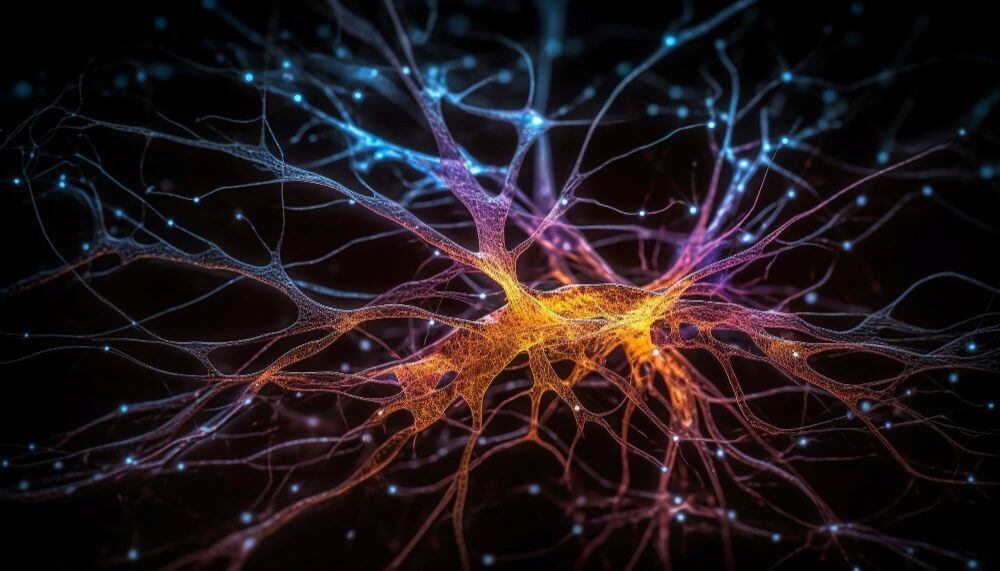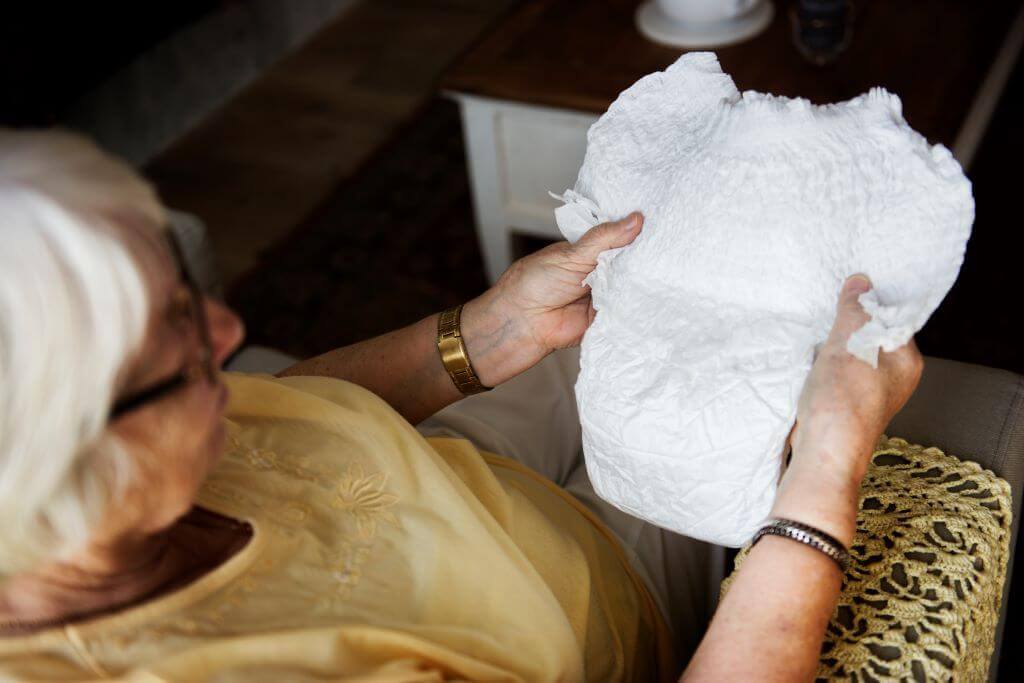Incontinence is the inability to control the bladder, which results in urine leaking involuntarily. Incontinence can also refer to fecal leakage, but it is much less prevalent than urinary incontinence. Accordingly, this article focuses on issues relating only to urinary incontinence. Incontinence has many causes. It can affect people of all ages, but the incidence certainly increases with age. Other causes include childbirth, infections, accidents and so on, but neurological conditions are high on the list of the most common causes.
This article aims to provide a comprehensive understanding of the neurological disorders that can cause incontinence. We will explore the common neurological conditions associated with incontinence, delve into the mechanisms behind incontinence in these conditions, discuss the symptoms and diagnostic approaches, highlight available treatment options, and provide practical tips for managing incontinence in daily life.
Understanding Neurological Disorders and Incontinence
Neurological disorders are the result of a malfunction in the brain or central nervous system. Causes vary widely but include, among others, genetic disorders, lifestyle or injury to the brain or spinal cord. The malfunctions prevent or disrupt communication between the brain and the rest of the body and adversely impact muscle and organ function.
An area that is commonly affected by neurological disorders is the lower urinary tract, which includes the bladder and urethra and the pelvic floor and sphincter muscles. The affected person becomes unable to control the bladder and the urine flow, resulting in incontinence.
Common Neurological Conditions Associated with Incontinence
Multiple Sclerosis (MS)
MS, considered an autoimmune disease by some, attacks the myelin, a protective sheath around nerves, including those of the brain and spinal cord. The myelin sheath facilitates the fast and efficient transmission of electrical impulses along the length of the nerve. Damage to the myelin slows these impulses down and disrupts the functioning of the muscles that control the bladder.
Parkinson's Disease
Parkinson’s Disease is commonly known to cause movement control problems like shaking and walking difficulty. However, in the later stages of the disease, various non-motor symptoms begin to appear, These include incontinence and dementia. The signaling between the brain and the bladder goes awry, which causes the bladder to contract even when it’s not full. If the contraction is strong enough, it may cause a leak. Parkinson’s causes troublesome incontinence in about 15% of cases.
Stroke
A stroke can harm the area of the brain that controls the bladder. As a result, the bladder no longer receives signals to hold or release urine. This leads to reflex incontinence, where you unknowingly pass urine. A stroke can also damage other parts of the brain that control muscles involved in bladder function. A stroke can also cause weakness in the muscles around the lower urinary tract, which may lead to various types of incontinence. In many cases, therapy will reverse or substantially improve the severity of incontinence caused by a stroke.
Symptoms and Diagnosis of Neurological Incontinence
Strokes can cause significant physical and emotional damage, especially in the first few weeks. They may be reluctant to mention the incontinence to a caregiver to avoid embarrassment or because they feel it is an additional burden on the caregiver. As a caregiver, recognizing the signs of incontinence will enable a quick diagnosis and timely treatment. Look out for the common symptoms, which include frequent urination, urgency (a sudden and intense need to urinate), difficulty starting or stopping urination, weak urine stream, and the inability to empty the bladder fully.
To diagnose neurological incontinence, healthcare professionals will typically start with a detailed medical history and physical examination. This helps identify any underlying conditions or factors contributing to the incontinence. Other tests may include:
· A urinalysis and urine culture to check for signs of infection or other abnormalities in the urine.
· Urodynamic testing to measure pressure and flow rates in the bladder to assess its function. This identifies issues with storing or emptying urine.
· Imaging studies, such as ultrasounds or MRI scans, to look for abnormalities in the nerves or spinal cord that could be causing neurological incontinence.
Treatment Options for Neurological Incontinence
For most people, incontinence treatment starts with the least invasive, least costly and easiest-to-do option, which is exercise. For certain types of incontinence, Kegel exercises have been shown to be very effective. A National Center for Biotechnology Information study found that between 50 and 69% of women reported an improvement after six months. Other non-pharmacological options include bladder training, scheduled toileting and nutrition and fluid management.
As a second-line option, medications are available that act on the bladder and its muscles to improve bladder control. When all else fails, there are various invasive options, including surgery. Consult your healthcare provider to find the treatment option that suits your unique situation.
Managing Incontinence in Daily Life with a Neurological Condition
For some patients, treatment may not provide a complete solution. The only option then is to accept it, live with it and manage it. Making some lifestyle changes may help to reduce the severity of incontinence and its impact on quality of life. Simple changes like monitoring fluid intake, practicing timed voiding, and avoiding bladder irritants like caffeine and alcohol can significantly reduce unexpected leaks.
The other major part of living with incontinence is that you manage your bladder using assistive devices or absorbent products. Assistive devices include catheters, clamps and urinals. Absorbent product options include inserts, pads, adult diapers and so forth. Choosing the best option here is very difficult, especially if you’re new to it. It’s best to speak to experts. At LL Medico, we have over 25 years of experience with senior care products, which our friendly assistants will gladly share with you.
Support and Resources for Individuals with Neurological Incontinence
Nobody understands the struggles and triumphs of living with neurological incontinence better than those who are also going through it. The same applies to caregivers. That's where support groups and online communities have a valuable role to play. These spaces allow you to connect with others who can relate, share experiences, and exchange tips on navigating the ins and outs of incontinence.
Support and advocacy groups offer valuable information and guidance, but they also work tirelessly to raise awareness and fight for improved care and support. There are numerous groups and communities scattered all over the US as well as online. The Family Caregiver Alliance and the National Alliance for Caregiving offer a wealth of resources and links.
Last but certainly not least, let's not forget the professional care providers. Whether it's your neurologist, urologist, or a specialized nurse, these experts play a vital role in helping you manage your neurological incontinence. So, keep those appointments and don't be shy about seeking their advice. They're there to help you take control of your bladder and reclaim your confidence.
In conclusion, living with neurological incontinence or caring for someone who has it is a particularly tough challenge. There are so many aspects to consider and new tasks to contend with. If there is any silver lining, it is that you are not alone in this. Don’t be afraid to ask for help. Millions of others have been here and are more than ready to give advice and support.
At LL Medico, we understand the difficulties, and we would like to offer our support by taking away the stress of ensuring you’re always stocked up on incontinence care products. Whether it’s adult diapers, urology devices or personal care products, LL Medico strives to offer the best products at competitive prices. The set-and-forget Autoship feature means you don’t need to worry about orders and deliveries. Get in touch today; we’re here to help.
Image by vecstock on Freepik.com






 855-422-4556
855-422-4556 Chat
Chat E-Mail
E-Mail Monday - Friday 9:00AM to 5:00PM EST
Monday - Friday 9:00AM to 5:00PM EST





 Shopping With LL Medico
Shopping With LL Medico
 855-422-4556
855-422-4556